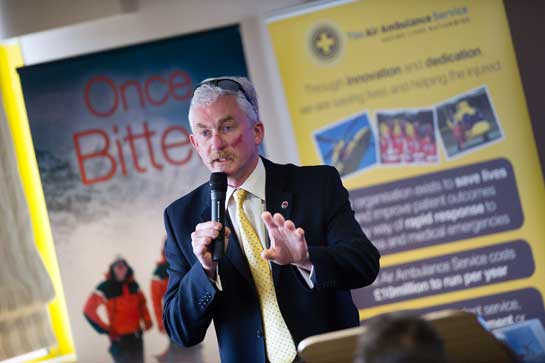When I say to someone that Engineering is similar to Mountaineering they think I’m talking rubbish. Perhaps I am, but over the past five months I have been delivering a great amount of Engineering Training. This has meant speaking for eight hours a day, all week, every week. Similarities between the two become obvious…
I have been training engineers how to use ENMAC PoF – a computer based system for the electricity industry. This means working in an office based environment with unnatural light and air conditioning – ‘quite the opposite of the mountains’ I hear you say…
Here’s where it starts. Both mountaineering and training need detailed planning. We need timescales, lists of resources, targets, budgets, contingencies etc. Here’s a few of my thoughts…
Every major climb has a base camp. This is where we establish ourselves at the bottom of the peak and amass stores, equipment, tents and communications. It’s a place of relative comfort and safety. When you’re on the hill, you always need somewhere to run to if everything goes wrong. When I’m speaking I set up two base camps. One at home and one in my training room…
- Home is my safety, security, warmth and rest. I always clear the decks in my house when something like this is coming up, so that I can walk through the door and relax if I need to. I prepare food in advance and (as I put it) get my shop in order.
- The training room has my supplies, comms and specialist equipment. Here I can prepare before the day begins, knowing that everything is in order when the trainees arrive.
Good food is a huge subject which is easily sidelined. When we’re busy, it’s easy to eat take aways and pile on the calories…
- During this recent training, a buffet lunch was provided every day. Though this makes catering simple, it becomes easy as the trainer to eat the same thing (and too much of it) everyday. I was extremely lucky that the caterers recognised my position and varied the menu daily to stop me getting bored. A big hand to Rosies Kitchen for that, but there is more to eating than just lunch. I prepared healthy meals at home and refused to fall into the take away trap.
- On the mountain we need excellent food to keep us going. We’re burning huge amounts of energy and need to replace our weight loss. Also it can be difficult to get a balanced diet at 20,000ft, so any chance of fruit or veg is a must.
Efficiency is vital. Just 1% here and there can make a huge difference…
- Delivering the same training programme over nineteen weeks is like running a number of marathons. We must learn what is important so that we can save seconds and minutes, hone our delivery and timing, preserve our energy and still deliver at 110%
- On the mountain we haul stores and build camps. We need to get our weights down to the minimum, whist still taking what we need. We do not run about all day and night, burning energy that we must preserve, we must sleep well to recharge ourselves for the coming day and we take rest days when required. We’re not machines..! Some years ago in Chile I thought I could take on the world. I was young, strong and daft. After eleven gruelling weeks of non stop action I collapsed and lay in bed for three days. It was a lesson I will never forget…
Health is a huge issue. It’s so easy to just let go and hope that we stay well…
- I kept physically fit and preserved my most important tool – my voice. It’s hard to present without one..! Coughs and cold galore came and went in the room with the trainees, but I managed to fend them off. Were back to good food again (lots of vitamin C) and fresh air.
- We cannot afford any respiratory illnesses on the mountain as our lungs have enough to cope with at altitude. Also we must remain physically strong to haul loads and climb whatever the mountain throws at us if we wish to achieve the summit.
Rest is vital if we are to succeed. As I’ve said before, we’re not machines…
- The amount of training I was doing was mentally draining, so any time out was precious. Weekends away and good company helped tremendously, but at times I did feel like a hermit. My apologies to my friends and to the PSA. I wasn’t ignoring you. I took a break to speak at the Kendal Mountain Festival, (where as they say, a change is as good as a rest), and a few days off over Christmas. I remember Peter Roper once telling me that you shouldn’t speak for over 150 days a year, because of the physical and mental drain it puts on you. With you there Peter..!
- We rest as much as possible on a mountaineering expedition to preserve our resources of energy. Also we must fight with high altitude and allow our bodies to cope with the meagre amounts of oxygen in the thinning atmosphere. We usually climb three days and then rest a day for this.
I could go on for hours, but there are a few of the basics. We must pace ourselves when huge projects appear in our lives (and I don’t just mean work). No-one will thank us when we keel over because of sickness or exhaustion. We must work as well as we can, be the best that we can be and celebrate our successes, talking of which, I’m off into the mountains..!
